Annual School Performance Report 2021



Sheldon College is an independent, co-educational, non-denominational College that was established in 1997. The College is organised into 4 Sub-Colleges:
Early Learning (Kindergarten - Ages 3 to 5)
Junior College (Preparatory to Year 4)
Middle College (Years 5 to 8)
Senior College (Years 9 to 12)
Principal: Ms Kate Mortimer B. ED (Honours) Master of Education (Educational Leadership)
School sector: Independent
Address: Taylor Road, Sheldon Q 4157
Year levels offered: Kindergarten/Preparatory to Year 12
Co-educational or single sex: Co-educational

To provide a quality educational experience in an environment that encourages and enables our students to succeed in a constantly changing world.
Sheldon College is an independent, coeducational, non-denominational College situated in Redlands City. Committed to the teaching philosophy of Love, Laughter and Learning, the College caters for students from 15 months of age through to Year 12.
The College campus is located on 60 acres in a semi-rural setting in Taylor Road, Sheldon. Established 25 years ago, the College is committed to providing a quality education for all students in a safe, secure learning environment which is characterised by progressive thinking and underpinned by high standards for both staff and students in the areas of dress and appearance, behaviour and individual scholarship and work habits.
Sheldon College is a Company Limited by Guarantee which has its own Constitution and which complies with the laws in the Corporations Act that apply to public companies. It is a not for profit organisation governed by a Board of Directors. The Board is responsible for setting the broad policy and strategic direction of the College, as well as the overall financial management of the College. All other aspects of the College’s functioning are the direct responsibility of the Principal.
The Mission of Sheldon College is “to provide a quality educational experience in an environment which encourages and enables our students to succeed in a constantly changing world.” Our Student Exit Outcomes ensure our students leave our College equipped with the necessary skills and knowledge to become self-directed learners, creative thinkers, problem solvers, innovators, effective communicators and collaborators, information and media literate, skilled in the core literacies and possessing high self-esteem; thereby enabling them to make a smooth transition to University, College or the world of work; to become lifelong learners; and to participate responsibly and successfully in a global society.
At Sheldon College, empowering young people to reach their potential is at the heart of what we do..
For further information go to: www.sheldoncollege.com
Ms Kate Mortimer Principal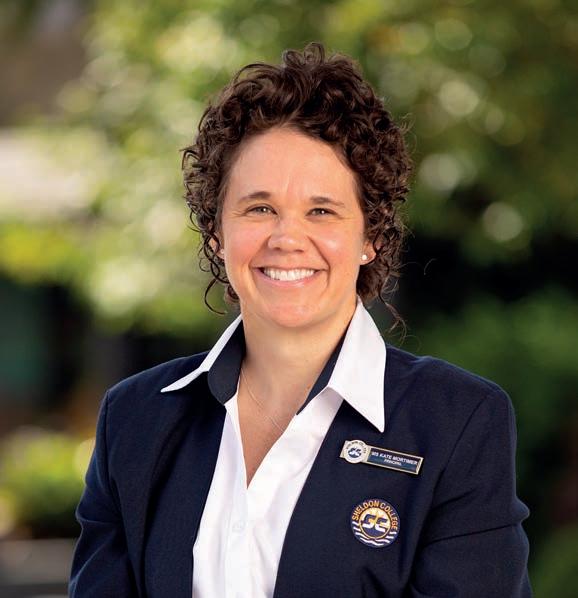
As a College we are committed to the following Core Values:
• Student success
• Excellence in teaching and learning
• A safe, orderly and supportive learning environment
• Collaborative home-College-community partnerships
• Shared decision making
• Recognition and reward
• Service orientation
• Continuous improvement
• High standards in dress and appearance, behaviour and individual scholarship and work habits
• Support for individual needs – intellectual, emotional, social, spiritual and physical
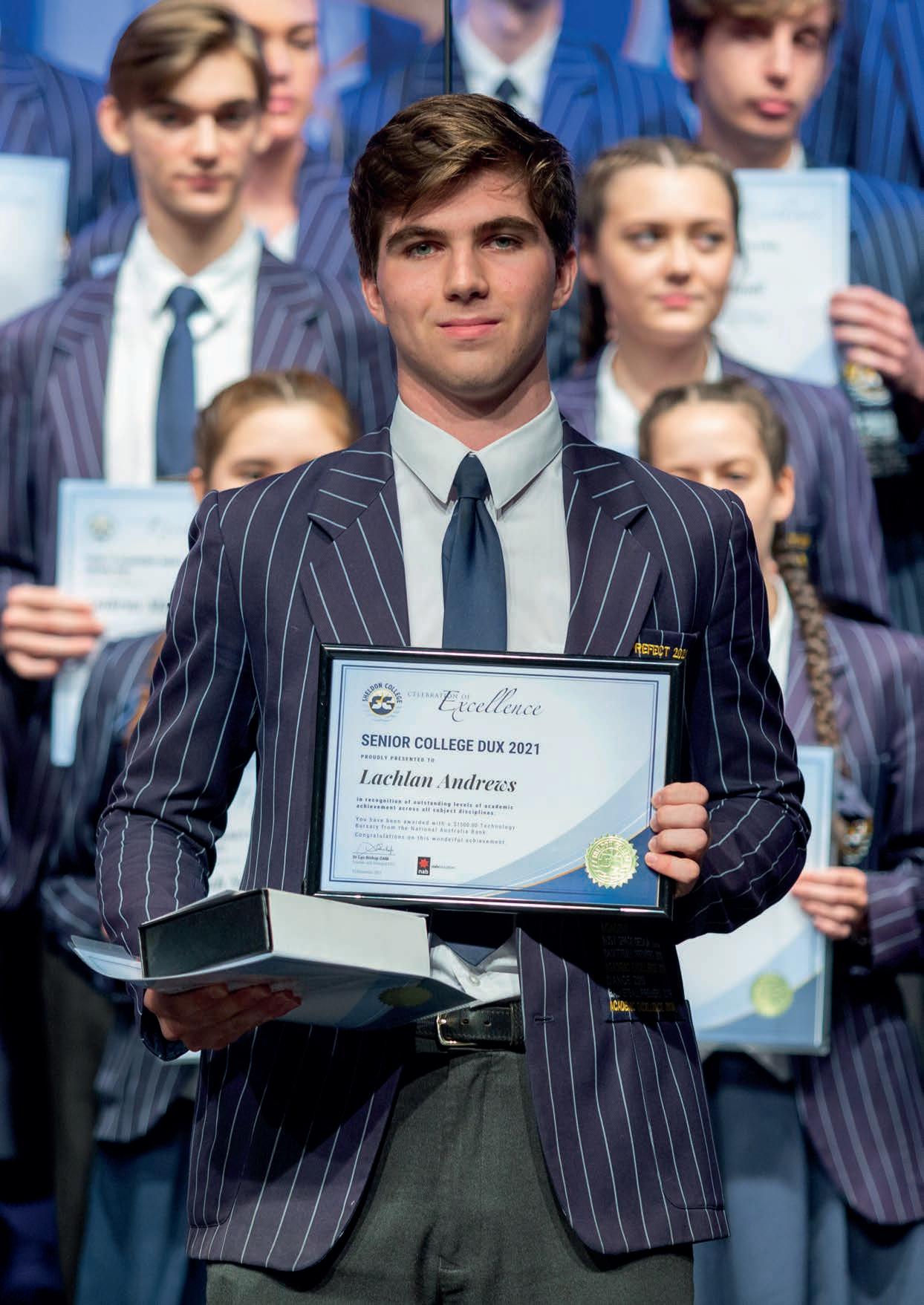
2021 was far from an ordinary year. With the extraordinary circumstances that confronted our world due to COVID-19, all sectors across the globe, including education, had to pivot in order to allow our next generation to continue in their learning journey. Throughout this year, Sheldon College unequivocally withheld the pressure and potential to regress by providing a first-class Home-Learning curriculum to our community.
The College’s Executive Curriculum Team, alongside our Academic staff continue to position Sheldon College at the forefront of ongoing innovation and achievement in education. Through explicit use of our New Art and Science of Teaching Pedagogical Framework, coupled with current research surrounding teaching and learning best practice, our students continue to flourish with the educational opportunities afforded them.
Naturally, in a year where learning in an online environment was sometimes thrust upon students across the globe, Sheldon College teachers and students were equipped with both the knowledge and skills to seamlessly transition into this mode of teaching and learning.
Whether our students were learning at home, or at school, their opportunity to engage with distinctive curriculum offerings never wavered. The following summaries provide just a few examples of the learning experiences students were offered at Sheldon College in 2021:
• Sheldon College has been recognised as an Apple Distinguished School since 2020. Apple Distinguished Schools are centres of leadership and educational excellence that highlighting the College’s success as an innovative and compelling learning environment that engages students and provides tangible evidence of academic accomplishment.
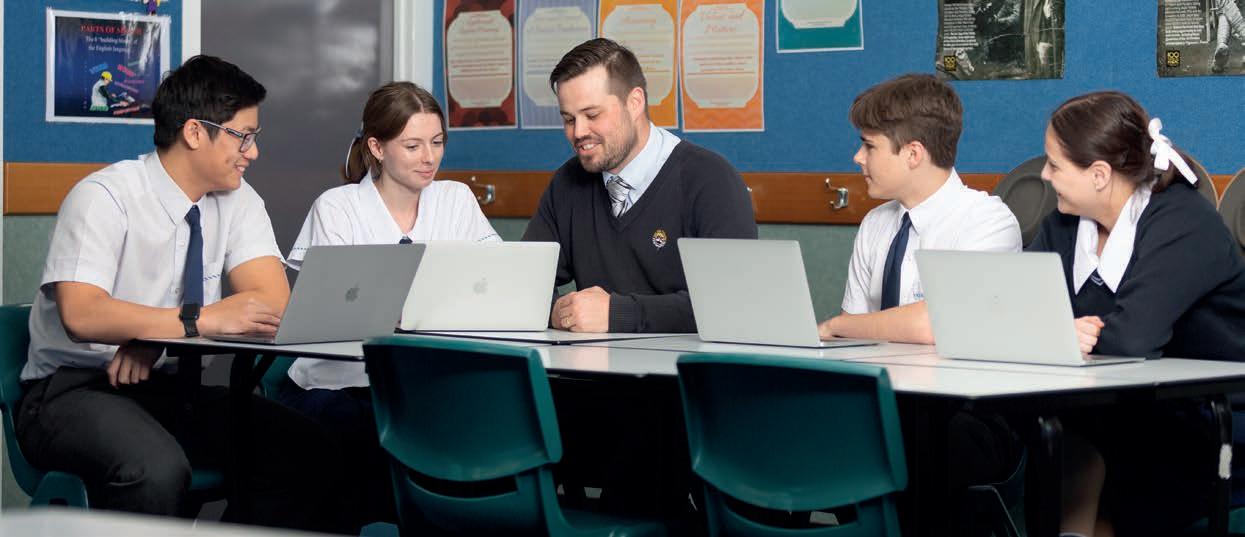
• Sheldon College was named as a top school across the country in 2020 as part of the Educator’s Innovative Schools Report. The College was acknowledged for their new innovative partnership with Dr Catherine Ball, founder of the World of Drones, drone expert and Associate Professor. Our partnership ensures the continued embedding of drones and robots within our curriculum and provides students insight into the revolution of industries and business processes yet to be realised.
• In 2021, 21 students participated in the Certificate III in Aviation (Remote Pilot) delivered by the Australian Unmanned Systems Academy (AUSA). This course allows students to achieve a Certificate III along with their CASA license which qualifies them to be employed as a drone pilot in industry.
• Senior Science students engaged with the UQ Science Ambassadors program. These students were responsible for developing and delivering events, holding National Science Week activities, and encouraging other senior Science students to share their experiences. The program challenged students to develop their leadership abilities and communication skills.
• We were delighted to partner with the world-renowned ICAS Assessments (International Competitions and Assessments for Schools) in 2021 to recognise and reward our students’ academic effort and achievement. ICAS is designed to target students’ higher-order thinking and problem-solving skills in English, Mathematics, Science, Writing, Spelling Bee and Digital Technologies. 78 of our students from Years 2-12 engaged in a total of 294 online tests to extend themselves academically and take up the personal challenge of competing in an international assessment, that has been running for 40 years. Over 60% of our students were recognised for performing in the top ranks across the nation. This includes 28 students who achieved a Distinction (top 11% of participants) and 2 students who achieved a High Distinction (top 1% of participants) and one student who received the Queensland Medal for the top Spelling Bee result in the State. These students were presented with medals and certificates on assembly.

• Year 12 students were engaged by Academic staff regarding their learning styles and “Developing Assessment Capable Learners” to maximise their potential for performance in the final Year 12 External Assessments (EAs).
• The Sheldon College MathsX Team were dominant competitors in both the UQ and QAMT Mathematics and Problem-Solving Competitions.
• Business students participated in competitions to improve financial literacy and entrepreneurial skill. These included but were not limited to the Buy Smart Competition and the ESSI Money Challenge.
• The Confucius Institute of Queensland (CIQ) engaged with the College to acknowledge the outstanding work our students did in their Chinese studies during the home learning period. This relationship brought about further learning opportunities for students in their Chinese classes.
• The English and Technology faculty continued the highly successful Shining Light Project. This cross-curricular project allowed students to research, design and create solutions to energy poverty in third world countries.
• The Business students held the annual Virtual Marketplace which is administrated and executed entirely by the students. This event allows students to apply the skills learned in their studies, but also allows them the opportunity to pitch their business ideas to the Sheldon College community and beyond.
• Students in the Primary years participated in cross-curricular Innovation Projects, involving many disciplines including English, HASS, Science, Visual Art, and Technologies.

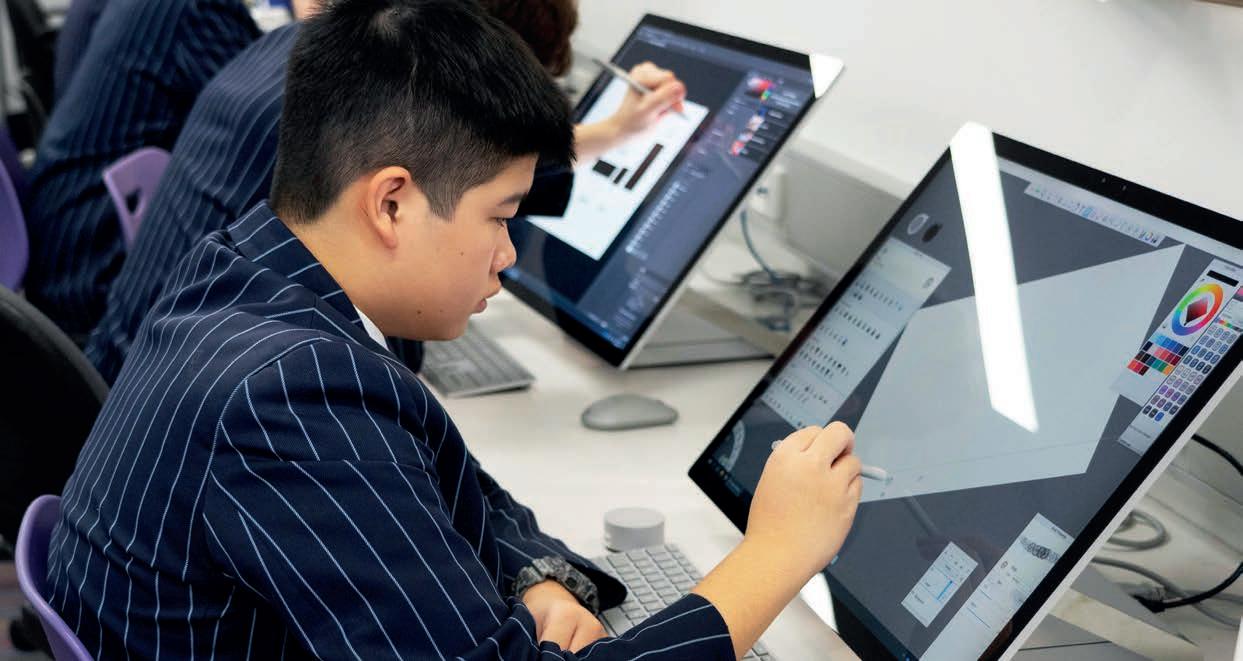
• Year 1 students designed and created proposal for a new playground for Junior College students.
• Year 2 students were immersed in Uno’s Garden, which saw students creating new hybrid creatures.
• In Year 3, students created a Travel Expo to entice their families to explore Australia. Year 4 students created Garden Guardians, incorporating Science, Maths, Technology and English.
• Year 5 students created environments, considering environmental and human characteristics, using Merge Cube technology and collaboration on CoSpaces.
• In Year 6, students used their Science and Design skills to create Solar Powered Cars, racing them to evaluate the most effective design.
• Students from Kindy to Year 4 took part in an end of year culminating event ‘Showcase’ led by Mr Rick Samuels and Mrs Heidi Esdaile. This event allowed students to display skills learnt in the Arts, as well as shared a strong and positive message with the Sheldon Community. This year’s show, ‘We are the Champions’, using the medium of Queen songs, saw students trying to save the world from “Billy the very bad baby” according to what they learnt from the great leaders of history.
• The Primary Faculty offered targeted literacy intervention through the Making Up For Lost Time in Literacy (MultiLIT) program, a research initiative of Macquarie University, New South Wales. It is a contemporary approach to best-practice literacy instruction as identified by International reading scientists. The two programs offered to eligible Sheldon College students were MiniLIT and MacqLIT across Prep to Year 6.

Sheldon College offers a comprehensive range of sporting, arts, academic enrichment, technological, personal development and community service programs to ensure students have many and varied opportunities to develop selfesteem, teamwork and higher order thinking skills.
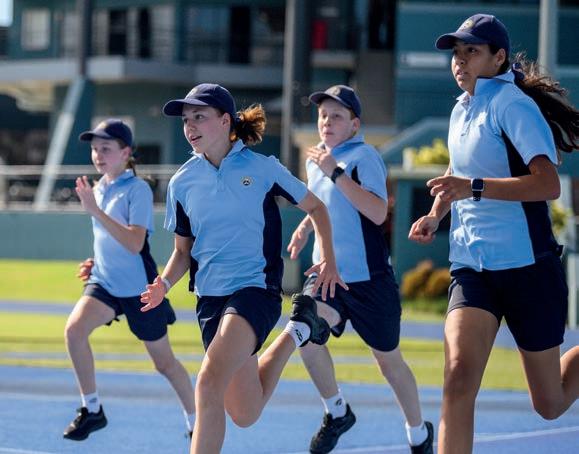
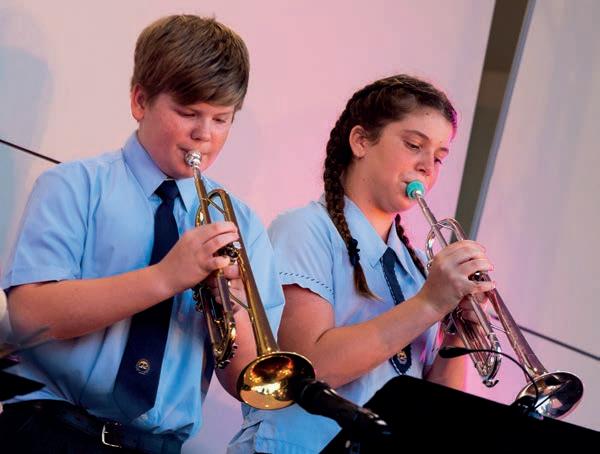
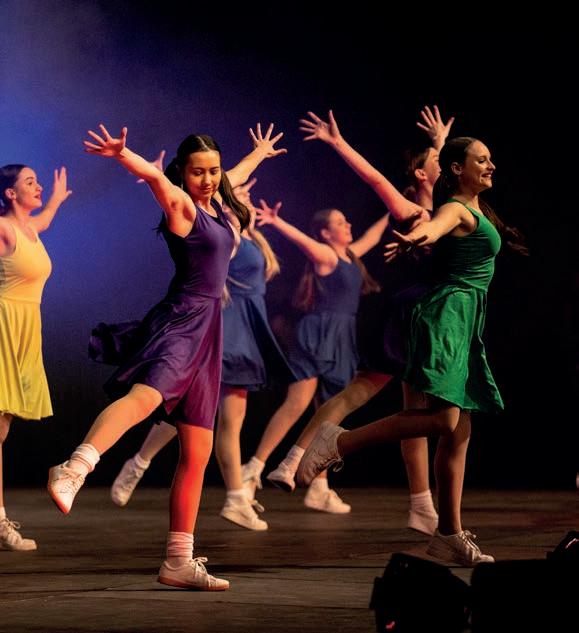
The College’s extensive co-curricular Sports Program caters to young beginners and social athletes through to those representing Australia in international competition. Students from Prep to Year 2 are offered a range of sport development programs, while students in Years 3 to 12 have access to weekly Saturday morning interschool sporting fixtures and associated training programs. Sports on offer in such weekly interschool fixtures include Australian Football, Basketball, Cricket, Football (Soccer), Netball, Touch Football and Volleyball, while interschool carnivals are run for Swimming, Cross Country and Track & Field.
In addition to interschool sport, a number of opportunities exist for students to compete in club sport for the College. At present such opportunities exist for both boys and girls in Basketball and Touch Football. The College also actively participates in a number of State and National tournaments to offer our students further opportunity to compete and grow in their chosen sport.
The Sheldon Academy of Sport (SAS) covers the College’s year-round, professionally coached individual performance sports of Athletics, Swimming and Tennis, with Strength & Conditioning and rehabilitation support provided by our own Exercise Physiologist. Some students enrol in SAS programs as casual/social participants, while the more serious athletes commit significant time and effort to more advanced pathways in their goal of reaching their full sporting potential. All three SAS programs are affiliated with their relevant sport governing body, opening direct competition pathways to state and national representation.
The Australian School of the Arts (ASTA) offers a comprehensive and innovative co-curricular Arts Program, catering for students in Preparatory to Year 12 across all facets of Arts Education. This program builds on Arts curriculum to identify, equip, extend and nurture students who show a passion and talent for any area of the Arts, thereby enabling them to become resilient, confident, creative individuals and equipping them to follow their chosen pathways post school. The ASTA Academy Programs offer students in Prep to Year 8 the opportunity to gain skills and excellence in Drama, Dance and Visual Art. The ASTA Professionals Program is a suite of audition based, specialist excellence courses that support talented Arts students in Years 9 to 12 in the areas of Combined Performing Arts, Fine Art, Fashion Design and Film, Television and New Media.

The ASTA Performance Music Program offers vocal and instrumental tuition to around 600 students and boasts more than 30 ensembles that rehearse weekly. One of the major aims of this program is to provide our young musicians with “real world” performance experiences. Over the years, these have included performances for the Lord Mayor’s Multicultural Ball; Lord Mayor’s Business Dinner; The Governor’s Breakfast; the annual Royal Queensland Yacht Squadron Open Day; 1st Test of the Ashes Series at the Gabba; live bands at the Australia vs France and Australia vs New Zealand Rugby Internationals;
drumlines for the Brisbane Bullets; The Ekka and World Rugby League matches; as well as providing the orchestra and choir for the Redland City Christmas Carols. Eisteddfods and competitions are also part of the yearly program, providing students with the incentive to rise to the next level in the pursuit of excellence.
The Academic Enrichment component of the Co-curricular Program is designed to offer opportunities that enhance and develop students academically and socially, beyond the four walls of the classroom. To provide students with consolidated learning opportunities, a variety of tutorials, taught by subject area professionals, are offered each week across a range of subjects. Other programs on offer focus on progressing the skills and dispositions of 21st Century Learning, as well as the skills which underpin all Queensland Senior syllabuses - critical thinking, creative thinking, communication, collaboration and teamwork, personal and social skills, ICT/Technology skills, innovation, entrepreneurialism and global citizenship.

The Social and Emotional Wellness component of the Cocurricular Program is designed to promote a positive approach to student wellbeing by providing a range of opportunities for students to participate in the local and global community to further develop social and emotional skills. These include the Duke of Edinburgh Award and the support of various charities.

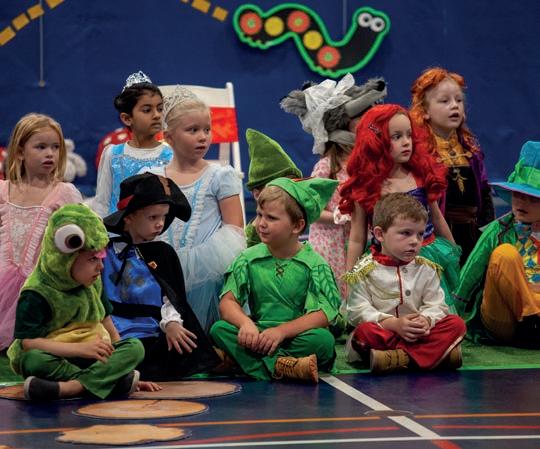


Topics covered in these year levels include:
• Time Management
• Drug Education
• Relationship Education
• Peer Mediation Skills
• Leadership Development
We firmly believe that our role is to ensure all students develop the necessary skills to become effective members of the College and wider community. Through the teaching of specific wellbeing topics, our students are well equipped to manage themselves and be positive people who embrace all opportunities in life.
The College wide focus on student wellbeing provides an avenue through which teachers can work with their students in a proactive way to ensure they develop the necessary skills to cope with adversity and thrive from the challenges they face in life.
Our goal as a College is to ensure our students graduate with the ability to take their place in society as well balanced, confident and respectful global citizens who positively contribute to the world in which they live.
Our Primary students have weekly Wellbeing topics which are reinforced through their weekly classroom activities facilitated by their classroom teacher.
Topics covered include:
• Healthy Mind/ Healthy Bodies
• Active Citizenship
• Values and Emotions
• Social Issues e.g. Cybersafety/ Stranger Danger
• Positive friendship making
Our Secondary students participate in weekly Personal Health and Development (Year 9 and 10) and Focus (Year 11 and 12) lessons.
• Coping with Adversity
• Positive Decision Making During the Teen Years
• Effective Study Skills
• Community Service
These programs and our overall approach to Wellbeing at Sheldon College enable and encourage our students to achieve to their potential in terms of the College Student Exit Outcomes. Our goal is to ensure each student achieves personal success by providing them with the knowledge, skills and values necessary to make a smooth transition to University or the world of work, as they become lifelong learners who participate responsibly and successfully in a global society.
Student leadership is valued and fostered through the appointment of Middle College Leaders, House Leaders, Senior Leaders, Prefects, Cultural Captains, Sporting Captains, College Vice-Captains and College Captains. Working with their Head of Year, each cohort participates in supporting a designated charity per year. Students are provided with a range of opportunities to contribute positively to College life and the wider community.
Traditional events such as the Preparatory Fairytale Ball, Showcase, Senior Leader Induction Ceremony, ANZAC Day Ceremony, Celebration of Excellence, Year 10 Semi-formal, Year 12 Formal and the Graduation Ceremony serve to reinforce the cultural fabric of the College.
Sheldon College ensures the safety and wellbeing of all students through its Student Protection and Anti-Bullying policies which can be viewed via the Parent Portal.

Sheldon College offers a comprehensive student wellbeing program from Kindy to Year 12 whereby we focus on the development of the social and emotional skills and strategies our students need to flourish in life.
Parents are encouraged to participate in a wide range of voluntary assistance areas including the Resource Centre, attending excursions, assisting in the classroom, providing support for families in crisis through the Chaplaincy program, coaching, managing and supporting sporting teams, supporting extracurricular experiences of an Arts/Cultural nature, and offering elective programs.
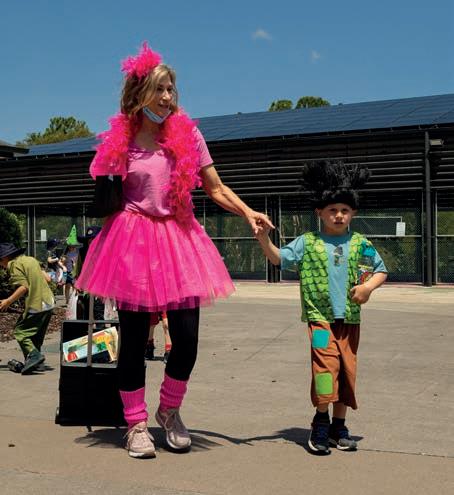
Parent Meetings are held regularly throughout the year for all parents from Kindergarten through to Year 12. These meetings provide a first-hand opportunity to interact with our client base on a personal basis. The meetings include an update on strategic issues relating to curriculum and pedagogy; developments in the field of education; helpful hints for assisting children with their learning; updates on progress and development in various other portfolios; as well as providing parents with the opportunity to meet first-hand
with key personnel responsible for the education of our students.
Parent Workshops establish a depth of understanding regarding educational initiatives and provide an opportunity to interact with teachers. These forums provide the opportunity to seek feedback from our clients and this is used to inform and improve our future practice.
Parents are involved in a wide range of social events throughout the course of the College Year including the Arts Academies, Fairytale Ball, College Musical, Sporting Awards Dinner and the College Carnivals.
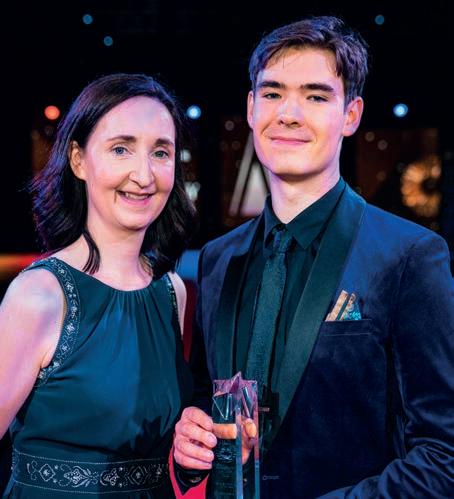
An open communication with parents is facilitated through interactive technologies, the College Website, Parent-Teacher interviews, Reporting, our iLINQ Parent Portal and our ‘open door’ policy.

“What the homes are, the schools will be and what the two are the future will be.”
Education is a partnership between the home and the school.
Throughout 2021 Sheldon College employed 120 teachers in classrooms and as school leaders.

Based on unplanned absences for sick and emergency leave periods of up to five days, the average ‘teacher attendance rate’ is calculated at 93.71%.
Sheldon staff are committed professionals. Of the 111.1 equivalent full-time teachers employed at the close of the 2021 program year, 94.1 were retained in 2022, yielding a teacher retention rate of 85%.
Sheldon College supports its employees by building an inclusive, culturally capable and diverse workforce that reflects the College community and Values. We currently have 1 staff member who identifies as Indigenous.
School income broken down by funding source is available via the My School website at http://www.myschool.edu.au/.
From the 1268 students (Years P-12 August 2021 Census) attending Sheldon College in 2021, there were 14332.5 student day absences (including part-day absences) registered as ‘Absent from School’, ‘Absent for Morning’, ‘Absent for Afternoon’ or ‘Extended Absence’ yielding an average student attendance rate of 93.1%%. ‘Student Absence’ information for 2021 is tabled as follows:
The break-up by Year Level for student attendance in 2021 is as follows:
In accordance with Australian Government regulations, the ‘Year 10 to 12 Apparent Retention Rate’ is defined as the number of full-time students in Year 12 in any given program year expressed as the percentage of those students who started secondary school five years previously (this may be greater than 100%).
The ‘Year 10 to 12 Apparent Retention Rate’ for Sheldon College in 2021 is calculated to be 101.0% as provided by Queensland Department of Education and Training (DET).

The 2021 ‘Year 10 to 12 Apparent Retention Rate’ data for 2019 to 2021 is tabled below:
Each day, the College produces a daily absence report and a 3 day absence report. At the end of each term, the College produces an excessive absence report for each year level. The Student Services Office records all absent from College details as provided by parents and this is cross-checked with daily absence reports. Parents are required to notify the College if their child is absent and a medical certificate is required for absences of 3 days or more.
NAPLAN for Years 3, 5, 7 and 9 recommenced in 2021 after a hiatus in 2020 due to COVID-19. However, because Sheldon College maintains a strong commitment to developing core skills in literacy and numeracy within our student body regardless of external assessment programs, our student performance reflected continued exceptional performance. College-wide participation rates were exceptional as always (99%), which means we can trust that the data accurately reflects the performance of our whole cohort. Some of the highlights are summarised below. Alternatively, data on these outcomes may be accessed via the My School website http://www.myschool.edu.au/
The average NAPLAN score for all students at the school in each domain, compared to the average score of students in Australia for that domain.
The percentage of students at the school who achieved above average progress, compared to students of a similar background and who had the same starting score on their previous NAPLAN test.
The information tabled below relating to Year 12 School Reporting 2021 for Sheldon College is provided by the Queensland Curriculum and Assessment Authority (QCAA). 2021 is our second year of the new QCE and ATAR system.

Sheldon College offers a wide and varied curriculum. Programs on offer that valueadd to the curriculum include such things as:
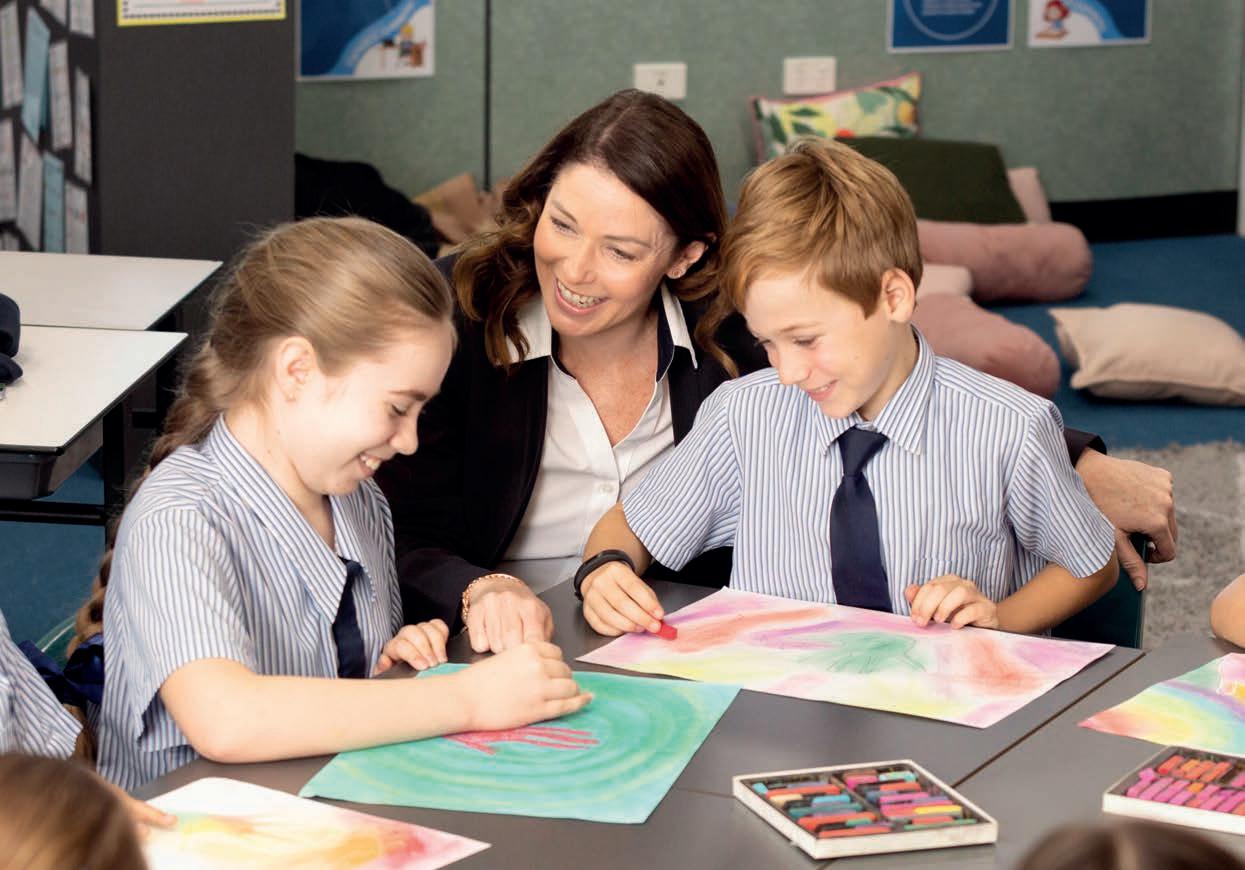
Wonderland is our Long Day Care Facility which opens between the hours of 6.30a.m. and 6.00 p.m. throughout 50 weeks of the year.
This purpose-built facility houses four air-conditioned classrooms catering for children from 15 months through to school age. Children experience daily the 3L’s of teaching – Love, Laughter and Learning.
The Sheldon College Kindergarten is a place where children are provided with opportunities to question, explore, succeed and have fun. The fully accredited Kindergarten Program is delivered by university qualified Early Childhood Educators who work very closely with our Preparatory Teachers to ensure a smooth transition into Prep.
Our Kindergarten is acknowledged for its outstanding level of care and service and has been recognised as EXCEEDING THE NATIONAL QUALITY STANDARD in 7 out of the 7 of the Quality areas.
Our Outside of School Hours Care programs include Before College Care, After College Care and Vacation Care. The programs are housed in our own state-of-the-art purpose-built facility, “Our Place”.
This program is designed to complement the busy day the children have enjoyed at school. The programs at “Our Place” are dynamic and are structured around the students’ suggestions, interests and needs.
The Sheldon Event Centre, located within the Sheldon College campus can cater for up to 2500 people and boasts its own hospitality and catering facility. The Sheldon Event Centre houses its own multi-user courts, world-class gymnasium and swimming pool, dance/aerobics rooms, as well as multi-purpose function rooms and it is capable of hosting events of any size in the large stadium arena.
The Senior Schooling program at Sheldon College offers quality educational programs that enhance partnerships between Sheldon College and tertiary and other training organisations, business, industry and the wider community. Such initiatives include:

• Provision of extension programs such as University courses
• Individual Student Pathways to Success
• Mentoring Program
• Student Coaching
• Options afternoon whereby students access a range of activities
• School based traineeships
• Free Tutorials
• Senior subject selection guidance
• Links with Business and Industry
• Programs to assist students with tertiary entry or entry into the workforce
• School-Based Apprenticeships and Traineeships
• Work Experience
• TAFE Partnership with Schools Program
• Diploma of Business
• Sheldon College Aviation and Space Academy • Links with Universities
The Sheldon LINQ Academy, in collaboration with Griffith University finalised a tertiary partnership model for Griffith preservice teachers undertaking their final trimester of a Bachelor of Education. Four academic staff members have been certified through the Queensland College of Teachers (QCT) to deliver university course work to future teachers onsite at Sheldon College.
The inaugural ‘Supercharge Your Superpowers’ one-day conference for new and beginning teachers was held. 40 participants engaged in high-quality workshops about curriculum, pedagogy and metacognition in Primary and Secondary environments.
The ‘Teach Meets’ series of seminars engaged over 70 teachers across the country in topics like: Feedback and Self-regulation; Innovative Curriculum Design; and, Having the Permission to Triumph. These webinars had guest speakers who actively engaged professional knowledge and professional practice for participants.
In 2021, Sheldon College, in partnership with ISQ, researched and enacted the value of feedback through self-regulatory practices. Year 7 English students exercised positive thinking, metacognition and self-regulation in their Term 3 Novel Study unit of work. The Blended Learning pedagogy enacted by the
teachers was aimed at supporting self-regulated learning from its students. A variety of multi-modal tools were used by teachers and students over 6 weeks to track and details growth and improvement. (All housed on iLINQ: https://ilinq. sheldoncollege.com/homepage/15546 )
QUT Confucius Institute Queensland (CIQ) Network School
Sheldon College became a QUT CIQ network school on 20 August 2020. CIQ we work with school students, teachers, school leaders, professionals, organisations and communities to:
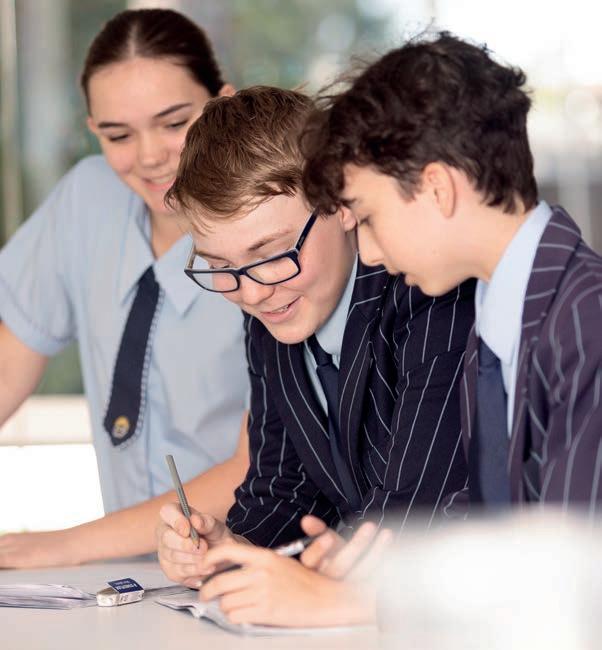
• provide opportunities for Queensland school students to learn about Chinese language and culture

• provide professional development for school leaders and teachers of Chinese language in Queensland schools
• provide Chinese language and culture programs for individuals and community groups in Queensland.
This is an exciting opportunity for students to be exposed to more authentic cultural experiences.
Sheldon College offers a wide and varied curriculum to students. Some of the programs on offer that value-add to the curriculum include such things as:
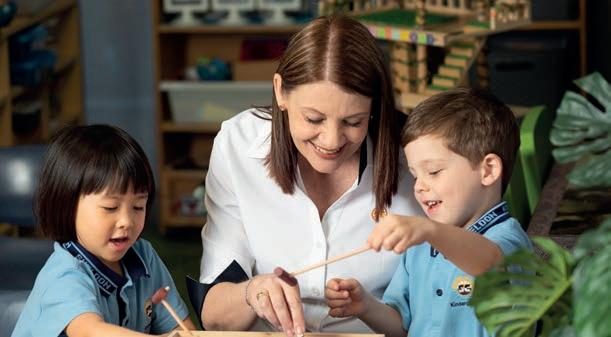
Satisfaction Surveys are conducted annually. Sheldon College employs the services of an external marketing agency ‘Engaged Strategy’ to undertake all our surveys. Below is a cross-section of responses received from the 2021 survey conducted for Parents, Students and Staff. Most questions in the survey were rating questions utilising a 1 – 10 scale; with 1 being the lowest and 10 the highest.
493 responses were received with respect to the Parent Satisfaction
• Overall satisfaction with Sheldon College 8.42
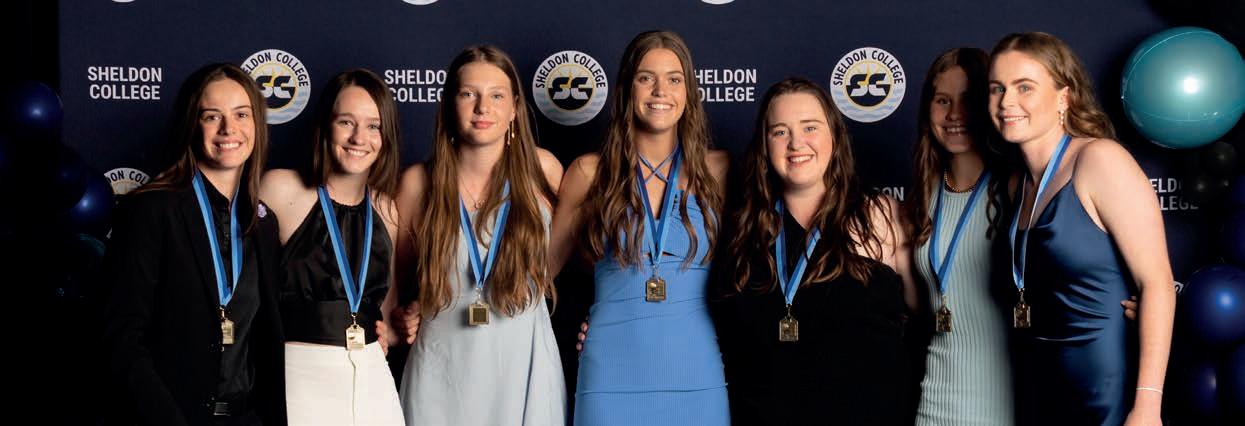
• Enrolment process 8.69
• Sheldon College staff 8.58
• Offers opportunities for sporting and cultural-related success 8.71
• Offers opportunities for academic success 8.64

• Provides a safe environment for my child/children 9.28
• Offers world-class facilities 9.23
1. Helpful
2. Professional 3. Reliable 4. Considerate 5. Courteous
1. Supported
2. Happy
3. Reassured
4. Cared for 5. Understood
• Students are encouraged to have a voice 6.18
• I get along with most of my teachers 7.83
• I respect most of my teachers 8.13
• I receive a quality education 8.04
• Teachers provide me with useful feedback about my school work 7.22
• Teachers have high expectations for all students 8.10
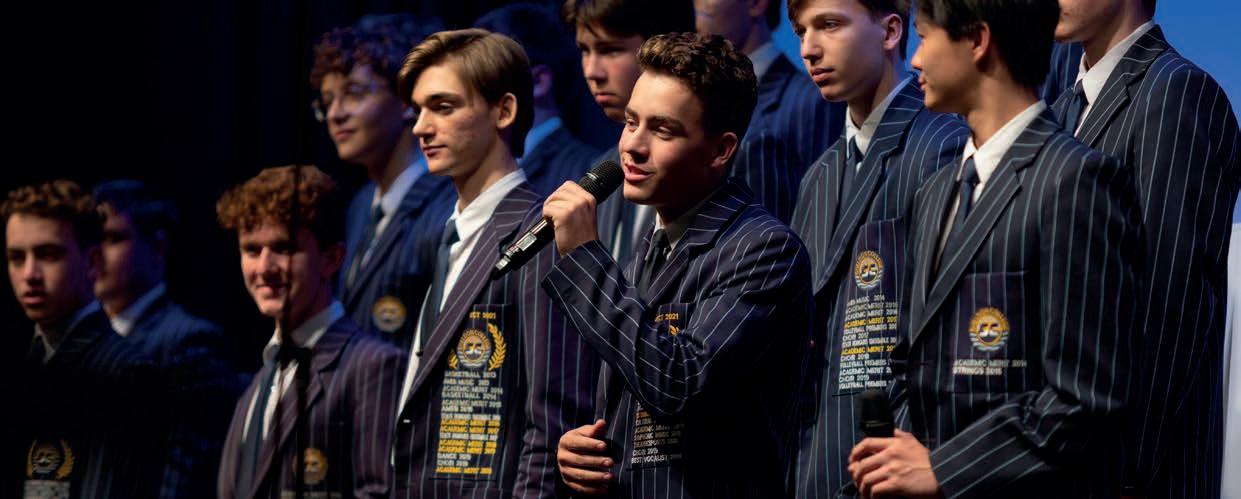
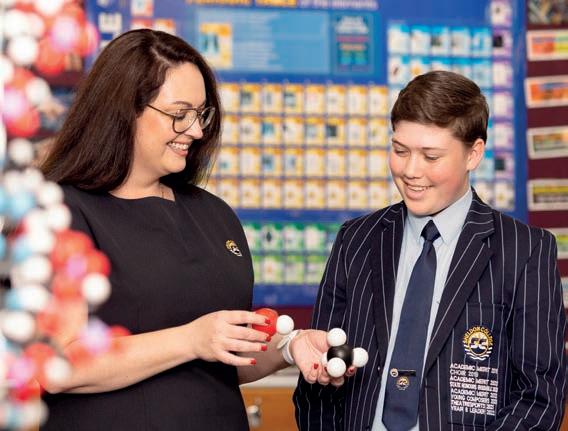

• Events and Performances 8.22
• ICT and Digital Platforms 7.13
The school has a lot to offer and the facility is as good as you will find
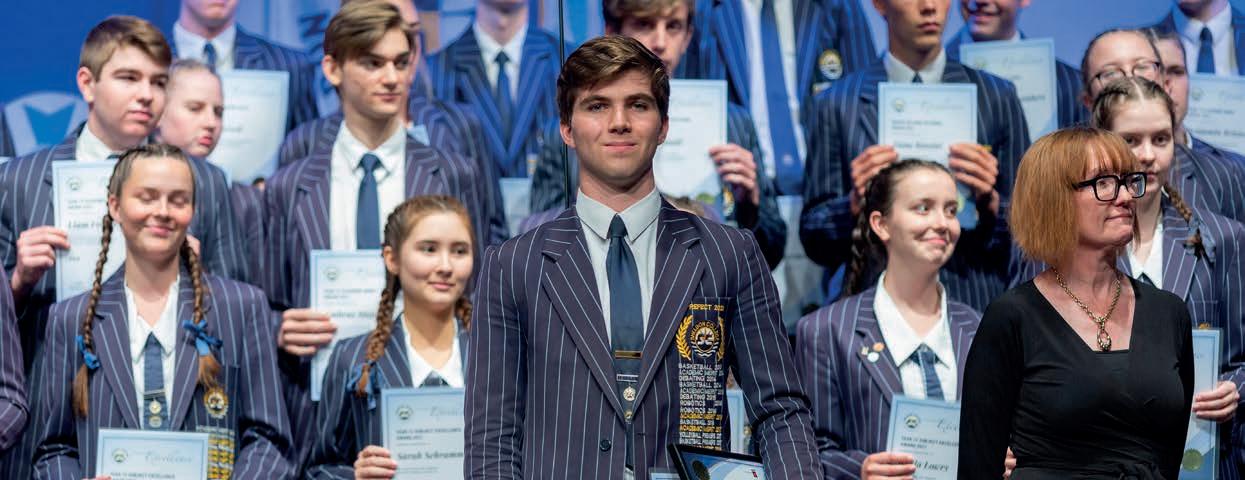


I love my job most when I see genuine growth in our practice and in our students
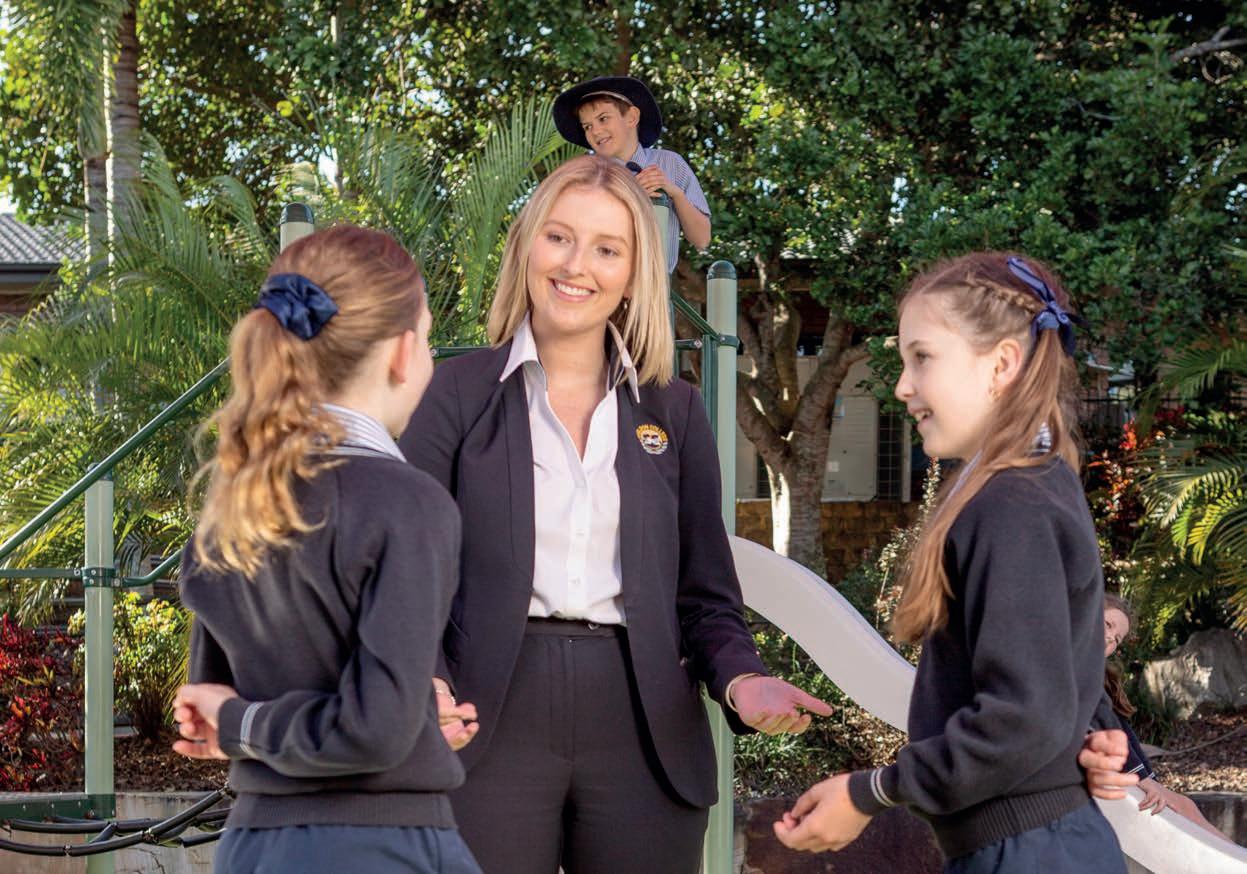
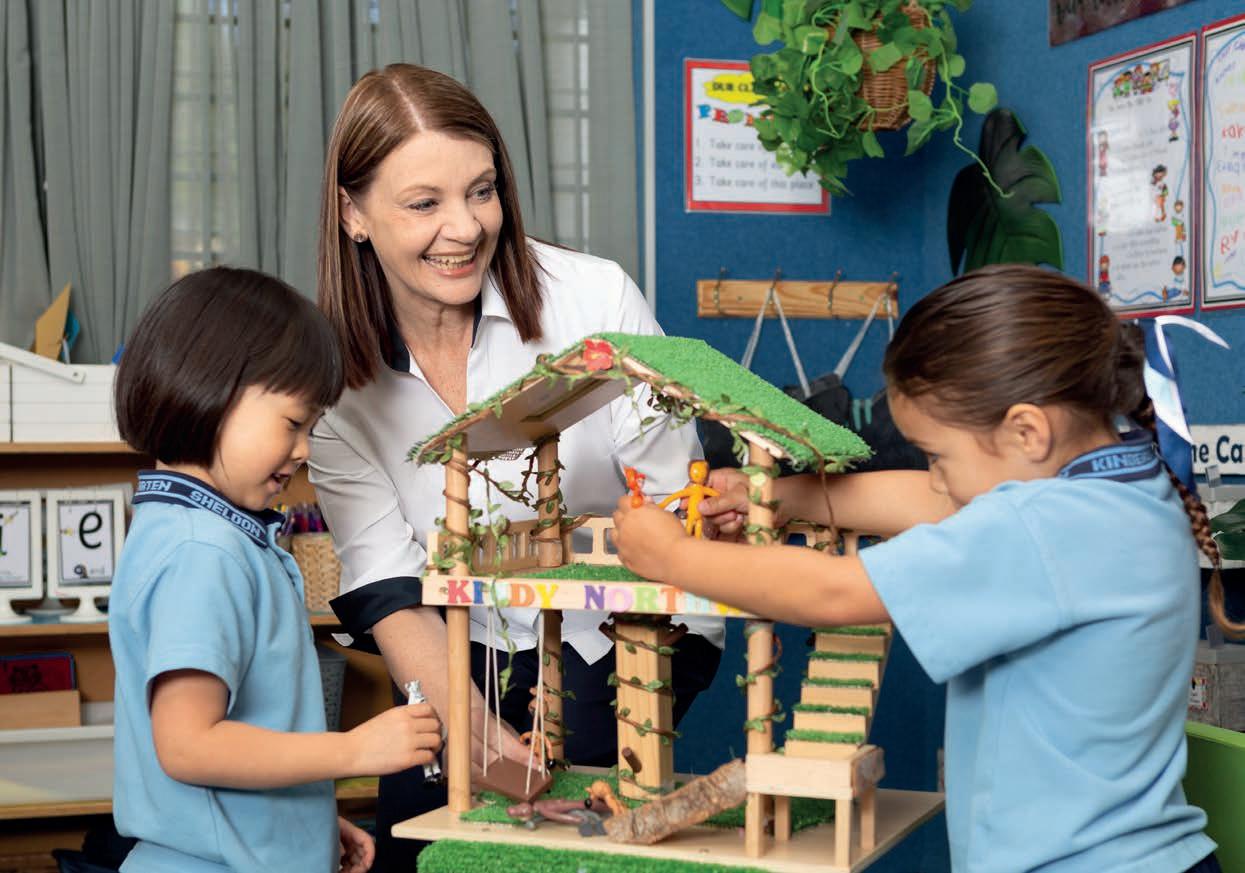
This is a summary of the post-school destinations of students from Sheldon College who completed Year 12 and gained a Senior Statement in 2021. The results are from the Year 12 Completers Survey, which is conducted approximately six months after students completed Year 12.
For more information about the survey visit the Next Step website www.qld.gov.au/nextstep Regional and statewide reports will be available from October 2022
89.0% response rate
97 out of 109 Year 12 completers from this school responded to the 2022 survey. Results may not be representative of all Year 12 completers at this school.
Post-school destinations
In 2022, 97.9% of Year 12 completers from Sheldon College were engaged in education, training or employment in the year after they completed school.
Of the 97 respondents, 87.6% continued in some recognised form of education and training. The most common study destination was bachelor degree.
A further 10.3% transitioned directly into paid employment and no further study.
All Year 12 completers were assigned to a main destination. Respondents who were both studying and working are reported as being in education or training, including apprentices and trainees.
Sheldon College
PO Box 1188, Capalaba Qld 4157
Telephone: 07 3206 5555
Email: enquiries@sheldoncollege.com
www.sheldoncollege.com
